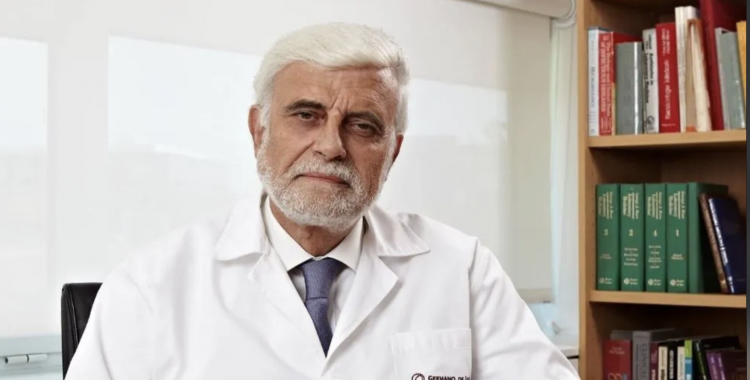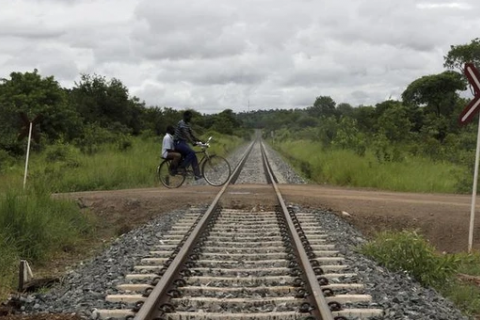"War is like that, as my file said that I had some psychiatric practice, suddenly, in the middle of it all, I received an order to report to the hospital director, who was a lieutenant colonel doctor", said the pathologist, in an interview with Lusa.
The person in charge confronted him with the information recorded in his personal file: "The colleague has something to say here: he actually worked in psychiatry."
Germano de Sousa confirmed, but warned that he was not a psychiatrist. In vain. The two psychiatrists on duty at the unit had traveled to Lisbon to accompany a group of military psychiatric patients and the hierarchical superior's decision was to assign the young doctor the task of "taking care of the hospital's psychiatry", with the recommendation "be patient".
"And there I went to the military psychiatric hospital. It was really surrounded by high walls, theoretically you could only enter through a door where there were guards. The first day I ran there, the second day I ran there, on the third a patient or two had escaped sick," he recalled.
After questioning how it would be possible for someone to escape from that place, the answer naturally came from someone familiar with the situation – "Ah, doctor, there's a hole back there through which they escape."
Once the gap that allowed the escape was closed, the days continued with other difficulties, which led the doctor to consider the month he spent there as the "most difficult and complicated" he had experienced.
"I found myself in charge of a psychiatric hospital, with some training, because luckily I had been where I had been in Coimbra and from then on...it was almost crazy in there, because the patients were picking on each other, there was no ability to contain that", he admitted.
"Every now and then I would take two or three of those patients, put them in the cells, they would go to the cells, close the door, whatever God wants! And that's how I endured those crazy days, in who, on top of that, had to give psychiatric consultations to military wives, who were also disturbed by all that. And I, alone, passed the Algarve raisins. I was praised for what I did, but I passed the Algarve raisins", guaranteed Germano de Sousa.
He said "thanks to God" when the psychiatrists returned from the metropolis and returned to Luso, where he was stationed. "It was a funny little town full of barbed wire, where there was a civil hospital and a military hospital", in the pathologist's description. Between 10 and 11 doctors, in total, served both the military and civilian population.
He would give "up to 150 general clinic consultations" a day, many using an interpreter to be able to understand the complaints of the population who were expressing themselves in dialect. "It was a crazy thing", he assured.
On his return to Luso, he came across his wife, who had meanwhile traveled to Angola, about to have a baby.
"My wife – in the meantime I had gotten married and I got there and she missed me – showed up to me there, six months pregnant with my first daughter", he said.
Christmas and the usual furloughs were approaching, so he started to get worried. "The only colleague who understood obstetrics was the health delegate, who had also gone on vacation.
"There were the midwives, I had done some births during my internship, because in Coimbra there was no obstetrics course, at that time, without us doing six births, everything was very different from what it is now, and I did some births until while I was in Tomar", he reported, recalling the time he underwent military preparation before heading to Angola, in the late 60s.
He turned out to be "the midwife" of his daughter.
Other stories remained behind, such as the trips on the mines, from which he emerged unharmed and the only shots Walther had to fire when he found himself under fire. "I hope I didn't kill anyone, I don't think so."
Of the various war situations he had to face, he remembers the autopsies he had to carry out on friends and the crash of a helicopter near the hospital, in a less tragic accident and one for which he had warned of the enormous probability of occurring.
"The broadcast guys were also crazy. They decided to put an antenna near the helipad. We had an area next to the infirmary where helicopters with injured people landed and the broadcast guys decided to put an antenna there relatively close, even very close, and I even asked one of them 'Hey man, if a helicopter comes tomorrow and there's a gust of wind, the guy will find that thing and leave'", he explained.
The answer was that "everything was under control".
"A while passed and one day I was called: 'Oh doctor, what a shame, come on doctor, a helicopter has crashed'".
The doctor immediately realized what had happened. "With the wind, it had hit the transmission antenna, it crashed to the ground and I immediately went to see the injured, I was carrying an injured person, I had already received the information on the radio", he explained.
Arriving at the scene, he found the commander of the device with a broken leg. He was taken on a stretcher to the hospital. The co-pilot was also "hurt" and was also removed.
"Then we started to see, so what about the injured person? And the guy, in the middle of that circus, was watching the disaster, he said – I'm the injured one. I was lying down, he didn't suffer much, he managed to drag himself to the side", he concludes.
Germano de Sousa traveled to Angola aboard the ship "Vera Cruz", in the company of fellow doctor and musician José Niza, on a trip that lasted around 12 days, after a few months of military preparation in Mafra (1968), and in Tomar. He went to Abrantes to join the company that would go to Angola, not knowing his destination.
He returned to Portugal in 1971, having finally applied to the internship that had been forbidden to him by PIDE when he completed his medical course and opted for the specialty of pathologist that he still pursues today.







